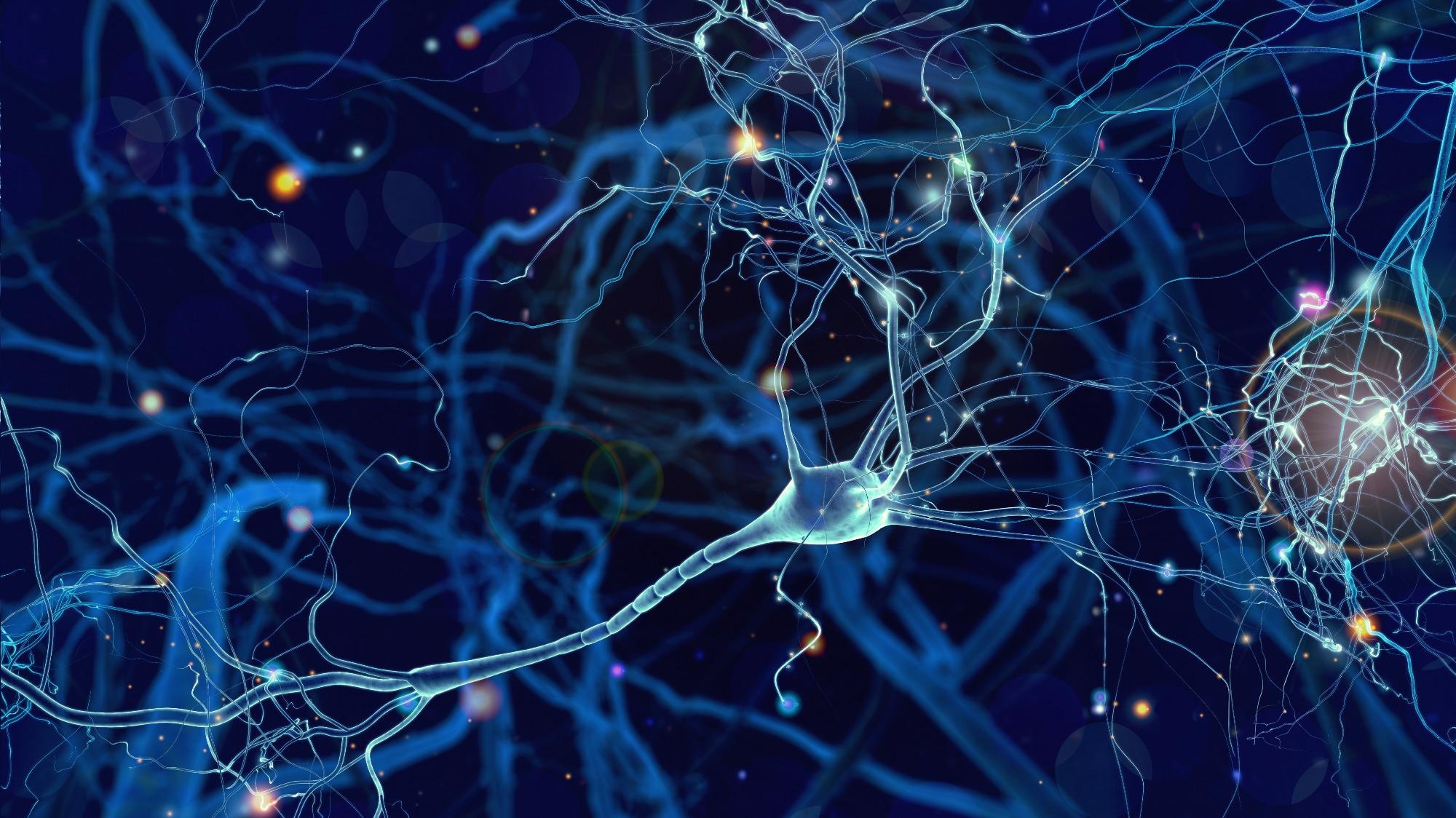Intelligence is a trait that can predict important occupational, educational, and health outcomes more strongly than other factors. Recent genome-wide association studies (GWAS) have identified inherited genome sequence differences that can be attributed to 20-50% heritability of intelligence.
GWAS studies test for associations between physical characteristics called phenotypes and genetic variants – single-nucleotide polymorphisms (SNPs) – in large groups of unrelated individuals. Although most SNPs have little effect on biological pathways, some SNPs can also produce a functional consequence, causing amino acid changes, leading to the identification of genetic underpinnings of a disease or a trait.

Image Credit: Triff/Shutterstock.com
What is Intelligence?
Intelligence is the ability to reason, learn, and problem solve. It is a trait that can be indirectly inferred from cognitive test scores, for example, is widely used intelligence tests that can produce an “IQ score”, which is an acronym for an intelligence quotient.
There is some controversy in considering the genetic basis of intelligence. However, over the past century, more evidence-based studies, twin studies, and adoption studies have produced a greater quantity of data that has consistently shown a substantial genetic influence on an individual's intelligence. Meta-analysis of data suggests that inherited differences in DNA sequences account for approximately half of the variance on merchants of intelligence.
Is There a Gene for Intelligence?
The first wave of GWAS studies produced results that were nonreplicable. As a result, it suggested that intelligence is highly polygenic, and much larger sample sizes are needed to identify genes that could contribute towards it reliably.
A large meta-analysis of the first 31 cohorts, which included approximately 54,000 individuals could only predict 1.2% of the variance in cognitive ability and biological pathway analysis could not produce significant findings. Educational attainment was later used as a proxy phenotype was used for intelligence which boosted sample size and increased the number of associated genes.
The sample size pool was further increased by including educational attainment for individuals, as this coordinates strongly with IQ. The most recent and largest genetic association study of intelligence identified 206 genomic regions, implicating 1041 genes, increasing the number of novel genomic sites by 191 and adding 963 new genes previously associated with cognitive ability.
These findings show that intelligence is a highly polygenic trait, consisting of several different genes which exert very small, if any influence at all, at different stages of development. They reported quantitative size effect for each allele is extremely small, generally accounting for less than 0.1% for even the strongest effects. Moreover, these combined effects that occur across the genome only explain a small proportion of the total variance. For example, the strongest effect of alleles identified on educational attainment explains only 0.022% of phenotypic variance in samples.
Despite these very small effects. Their current critical stages of development therefore may have large consequences on the function of the brain development as well as cognitive ability.
Conclusions from Genetic Studies Concerning Intelligence
Twin studies have shown that between 50 and 80% of individual differences in human intelligence can be explained by genetic influence, making intelligence one of the most heritable traits. This is assuming that twin studies yield accurate estimates of the total variance explained by inherited DNA differences.
However, GWAS studies only capture less than half of this heritability, between 21 and 22%. In addition, genetic influences are highly polygenic and are comprised of minuscule effects of a large number of genes.
The location of these also map to intronic and intergenic regions and so are thought to play a gene regulatory function. Only 1.4% of associated SNPs are located in DNA fragments that are translated into proteins. The majority of SNPs associated with intelligence are mostly located in intronic (51.3%) and intergenic areas (33.4%).
Among the genes that do produce functional proteins are implicated in neuronal functioning and include synaptic function and plasticity, cell interactions, and energy metabolism. A growing database has mapped the expression of these genes to principal neurons located in the cortex and midbrain. These are called the pyramidal and medium spiny neurons.
Neuronal Cells and Intelligence
In terms of the neurons implicated in human intelligence, approximately 50 transcriptomic cell types of pyramidal cells exist according to gene profiling of neurons with single-cell resolution. This information links to types of cells to region-specific long-range target specificity. Both striatal medium spiny neurons and pyramidal cells form a heterogeneous population with different functions attributed to different cell types which produced different connectivity patterns with the rest of the brain.
Given that there are a huge number of neuronal connections between 86 billion neurons in the brain, it is difficult to map how information processing by neurons can translate into differences in cognitive ability. However, mental processing speed and intelligence are linked.
Despite this link, very few studies support the understanding of how activity in the structure of a single human neuron supports intelligence and how fast mental processing can be elicited by cells in the brain.
In addition, there is a large knowledge gap as a result of limited exploration. Typically, neurosurgeons resect overlying the nonpathological neocortex from the human brain that is transported to the lab for investigation. In combination with cognitive testing before surgery, this allows the study of neuronal function in relation to human intelligence to be conducted.
Brain imaging studies lack the necessary cellular precision while other postmortem techniques are not suitable for physiological study. As such, this technique offers a great opportunity, and new avenues for studying the human brain on the cellular level are yet to be explored.

Image Credit: whitehoune/Shutterstock.com
Limitations and Future Directions
It is important to note that gene profiling has been conducted in mice, and it is unclear how well these mouse cell types correspond to human cell types. Moreover, it remains to be seen how different cell types support intelligence overall and confer specific cognitive abilities in the human brain.
To determine the answers to these questions, large-scale efforts that harnessed large quantities of data, in human cohorts, as well as cell and cell types are needed.
Sources:
- Goriounova NA, Mansvelder HD. (2019) Genes, Cells and Brain Areas of Intelligence. Front Hum Neurosci. doi:10.3389/fnhum.2019.00044.
- Plomin, Robert, and von Stumm, Sophie (2018) The new genetics of intelligence. Nat Rev Genet. Doi:10.1038/nrg.2017.104.
- Plomin R, Spinath FM. (2004) Intelligence: genetics, genes, and genomics. J Pers Soc Psychol. doi:10.1037/0022-3514.86.1.112.
Further Reading
Last Updated: Jul 14, 2022